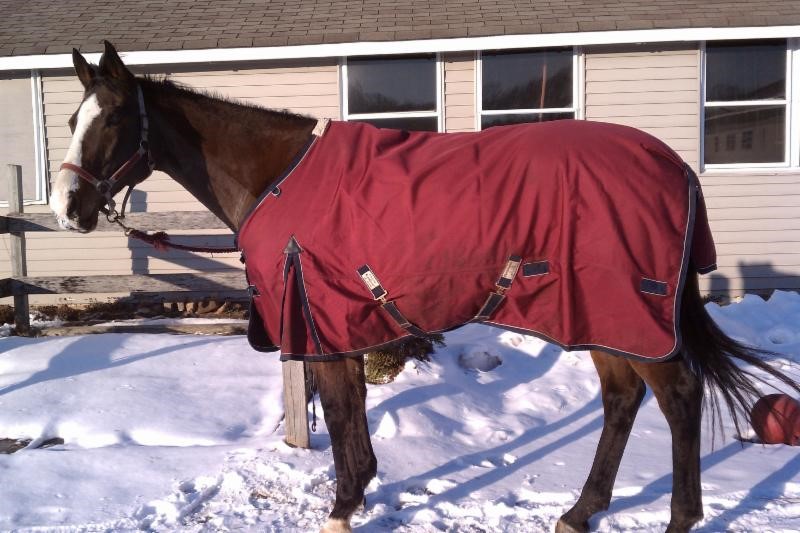When to Blanket a Horse: Ask the Expert

As the winter season approaches, the decision to blanket a horse can be a topic of confusion and debate. While some horses can thrive without blankets, understanding when it is necessary to provide extra protection and warmth is crucial. In this article, we address common questions and provide expert advice on when to blanket your horse during the winter months.
Question and Answer: Understanding Winter Blanketing
The Confusion and Personal Preferences
Question: “I’m confused about blanketing my horse during winter. Growing up, our horses were happily housed outside without blankets, as they had access to shelter. However, now that I’m boarding my horse, everyone at the barn blankets their horses and thinks I’m crazy not to. Can you provide some advice on blanketing during the winter?”
Answer: Blanketing practices vary based on individual circumstances, including show schedules and personal preferences of horse owners. While some horses may not require blankets, there are situations when blanketing becomes necessary to minimize the effects of cold or inclement weather.
When to Blanket: Key Considerations
To determine if blanketing is necessary, consider the following factors:
1. Lack of Shelter and Extreme Cold
Blanketing is recommended when there is no available shelter during turnout periods, and temperatures drop below 5°F, or the wind chill is below 5°F. The blanket provides additional insulation and protection against severe weather conditions.
2. Wet Weather Conditions
Blankets are beneficial if there is a chance the horse will become wet due to rain, ice, or freezing rain during cold weather. Wet hair reduces the horse’s ability to retain body heat, increasing the risk of hypothermia.
3. Clipped Horses
Horses that have had their winter coat clipped for specific purposes, such as showing or intense exercise, may require blankets to compensate for the lack of natural insulation provided by their coat.
4. Young or Elderly Horses
Very young or elderly horses have a harder time regulating their body temperature and may benefit from blankets to stay comfortable and prevent temperature-related health issues.
5. Horses Recently Relocated from Different Climates
If a horse has been recently moved from a southern climate to an area with colder winters, they may not have had time to acclimate to the lower temperatures. Blanketing can provide them with additional warmth until they adjust.
6. Poor Body Condition
Horses with a body condition score of 3 or less (on a scale of 1-9) may struggle to maintain their body heat and may benefit from the added insulation provided by blankets.
Understanding Winter Coat Development
Natural Winter Coat Growth and Shedding
Horses naturally develop a winter coat until the Winter Solstice (around December 22), as days become shorter. Afterward, they start shedding their winter coat and forming their summer coat as the days gradually lengthen. Blanketing before December 22 may decrease a horse’s natural winter coat growth.
Properly assessing when to blanket a horse during winter requires considering factors such as shelter availability, weather conditions, coat condition, age, and body condition score. While some horses can withstand the cold without blankets, others benefit from the added warmth and protection. Observing your horse’s behavior, consulting with professionals, and considering individual circumstances will help you make informed decisions regarding winter blanketing.
Ready to ensure your horse is getting the optimum nutrition at feeding time, every time? Find the perfect feed formulated specifically for horse’s needs with our Feed Selector Tool.
